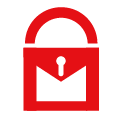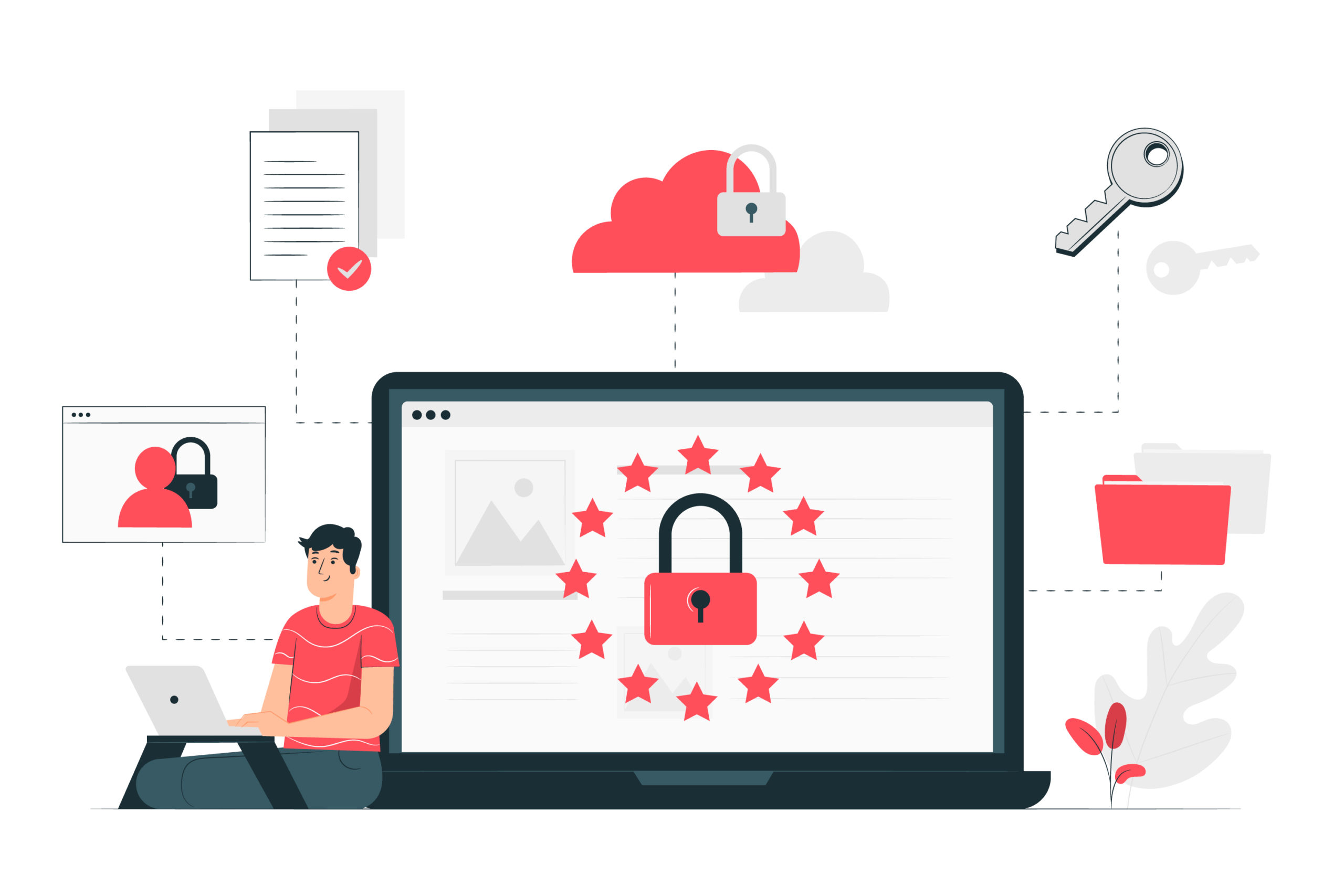Top 10 Cyber Security Tips For Employees in 2024

In the digital age of 2024, cybersecurity tips for employees have never been more critical. With the increasing sophistication of cyber threats, employees play a crucial role in safeguarding their organization’s sensitive data and systems. Whether you’re working from home or in the office, practicing good cybersecurity habits is essential. Here are the top 10 cyber security tips for employees in 2024 to help you protect yourself and your organization from potential cyber-attacks.
Table of Contents
Introduction
In an increasingly digitized world, cyber security is vital for individuals, organizations, and governments to mitigate risks, preserve privacy, and maintain the smooth functioning of critical infrastructure and services, ultimately ensuring the trust and security of the digital realm.
What is cyber security?
Cyber security refers to the practice of safeguarding digital systems, networks, and data from unauthorized access, attacks, or damage, ensuring the confidentiality, integrity, and availability of information. It encompasses a wide range of technologies, processes, and practices designed to protect computers, servers, mobile devices, and the vast network of interconnected systems from cyber threats, including malware, hacking, phishing, and more.

Top 10 Cyber Security tips for employees
Creating awareness about cyber security among employees is crucial for your organization’s safety. We’ve put together the top 10 cybersecurity tips for employees to help:
1. Use a strong, unique password
Strong and unique passwords are foundational in cyber security and important among cyber security tips for employees. These passwords, characterized by their complexity and unpredictability, pose formidable challenges for cybercriminals attempting to breach accounts through brute-force attacks. Their use significantly heightens the difficulty of unauthorized entry into various accounts, spanning work-related email accounts to personal online banking systems.
Uniqueness is equally paramount. In the event of a data breach or a compromised online service, unique passwords for each account confine potential damage. When employees recycle passwords across multiple accounts, a breach on one platform can cascade into unauthorized access elsewhere, amplifying risks.
2. Choosing the right anti-virus
When selecting antivirus software, it’s crucial to find a balance between several key factors. First, assess the effectiveness: the software should consistently detect and neutralize both known and new threats. System performance is also important; your chosen antivirus should offer strong protection without noticeably slowing down your computer. Look for additional features like internet security, email safeguards, and anti-phishing tools. Don’t overlook user reviews and expert opinions, as they provide insights into the software’s real-world performance. Finally, weigh the cost against the benefits. While some free versions are adequate for basic needs, paid versions typically offer more comprehensive coverage.
3. Safe Browsing Habits on Company Devices
Safe browsing habits on the company is another cyber security tips for employees devices are pivotal for maintaining cyber security. Employees must exercise caution while navigating the internet, particularly on devices issued by their workplace. This includes avoiding un-trusted or unknown websites, which could be hotbeds for malware or phishing scams.
It’s essential to resist the temptation to click on suspicious links or download unverified attachments, as these actions can expose the device, and consequently the company’s network, to security breaches. Additionally, ensuring that personal browsing is kept separate from work devices can significantly reduce the risk of inadvertent exposure to cyber threats. Implementing these disciplined browsing practices forms a fundamental layer of defense against potential cyber-attacks.
4. Recognizing and Avoiding Phishing Attempts
Recognizing and avoiding phishing attempts is among crucial cybersecurity tips for employees. Phishing, a common online scam, often involves deceptive emails or messages that mimic legitimate sources to steal sensitive information. Employees should be vigilant about emails requesting confidential data, especially if they create a sense of urgency or use scare tactics. It’s important to verify the sender’s authenticity before responding or clicking on any links. Look out for red flags such as poor grammar, unsolicited requests, and mismatched email addresses. By being aware and skeptical of unusual requests, employees can significantly bolster their defense against these insidious cyber threats.
You can also visit – Top 11 Phishing Simulation Best Practices 2023
5. Secure use of public Wi-Fi networks

Secure use of public Wi-Fi networks is an essential cyber security tips for employees. Public Wi-Fi, often found in cafes, airports, and hotels, can be a breeding ground for cyber threats due to its typically unsecured nature. Employees should avoid accessing sensitive work-related information or performing financial transactions while connected to these networks. If usage is unavoidable, it’s recommended to employ a virtual private network (VPN) to encrypt data transmission, adding a layer of security against potential interceptors. Additionally, ensuring that the Wi-Fi network is legitimate and not a malicious setup disguised as a free hotspot is crucial for maintaining online safety.
6. Regular Data Backup and Encryption
Regular data backup and encryption are vital cybersecurity tips for employees. In the event of a cyber-attack or system failure, having up-to-date backups ensures that critical information is not permanently lost. Employees should regularly back up data, ideally to a secure, off-site location or cloud service.
This habit becomes a safety net, allowing quick recovery of essential files. Alongside backups, encrypting sensitive data is key. Encryption transforms data into a coded form, making it unreadable to unauthorized individuals. By incorporating regular backups and robust encryption practices, employees significantly bolster their defense against data breaches and cyber threats, safeguarding both their work and the organization’s assets.
7. Regular Software and Browser Updates
Regular software and browser updates are crucial cyber security tips for employees. These updates often include patches for security vulnerabilities that cyber criminals could exploit. By neglecting these updates, employees inadvertently leave open doors for hackers to access company networks and confidential data. It is essential to enable automatic updates or regularly check for the latest versions of software and browsers. These updates not only enhance security but also improve functionality and user experience. By staying vigilant with updates, employees play a critical role in maintaining the overall cyber hygiene of the organization, significantly reducing the risk of cyber-attacks and data breaches.
8. Implementing Two-Factor Authentication
Implementing Two-Factor Authentication (2FA) is a key among cybersecurity tips for employees, offering an additional security layer beyond just a password. 2FA requires a second form of verification, such as a text message code or an app notification, making unauthorized access to accounts significantly more challenging. This method is especially crucial in protecting sensitive work-related accounts and data. Employees should enable 2FA wherever it’s offered, particularly for email, banking, and social media accounts linked to their professional life. By adopting 2FA, employees can substantially enhance their personal and organizational cyber security, safeguarding against potential breaches that exploit weaker, single-factor authentication methods.
9. Staying informed about the latest cyber threats
Staying informed about the latest cyber threats is critical among cyber security tips for employees. The digital landscape is continually evolving, with new threats emerging regularly. Employees should actively seek to stay updated on the latest cyber security trends, threats, and defensive tactics. This can be achieved through regular training sessions, subscribing to cyber security newsletters, and following trusted security experts on social media. By being aware of potential threats and the latest security protocols, employees can better recognize and react to cyber risks, playing a proactive role in safeguarding their organization’s digital assets and maintaining a robust cyber security posture.
10. Use of password manager effectively
Staying informed about the latest cyber threats is indispensable among cybersecurity tips for employees. In the ever-evolving landscape of cyber security, new threats and vulnerabilities emerge constantly. It’s crucial for employees to keep abreast of these changes. This knowledge can come from various sources, such as cyber security newsletters, online forums, or training provided by the employer.
Understanding the nature of recent cyber attacks, the tactics used by cybercriminals, and the best practices for defense can significantly enhance an employee’s ability to contribute to their organization’s cyber resilience. Informed employees are better equipped to recognize potential threats and respond effectively, making them a vital line of defense in the ongoing battle against cybercrime.
You can also visit – Top 10 Cyber Security Trends: Unfolding in 2024
Conclusion
In conclusion, adhering to these cyber security tips for employees is essential for employees in safeguarding both their personal and organizational digital assets. From practicing safe browsing and regular updates of software and browsers to implementing two-factor authentication and staying informed about the latest cyber threats, each step plays a pivotal role in building a robust cyber defense.
In today’s digital age, where cyber threats are constantly evolving, being proactive about cyber security is not just recommended, it’s necessary. Employees who are vigilant and informed are the best defense against the myriad of cyber risks. By integrating these practices into daily routines, employees can significantly contribute to creating a safer and more secure digital working environment.
FAQs
What are some of the cybersecurity tips for employees you can provide?
Regularly update software, use strong passwords, enable two-factor authentication, beware of phishing, secure home networks, use VPNs on public Wi-Fi, encrypt and back up data, keep work and personal devices separate, attend cyber security training, and stay informed about new threats are the tips you can provide.
What should employees know about cyber security?
Boost scam awareness; learn safe link clicking, file downloading, and password entry; regularly update antivirus to prevent spyware from phishing or infected sites.
What are key cyber security tips?
The key cyber security tips everyone should keep in mind are-
1. Use strong, unique passwords.
2. Enable two-factor authentication.
3. Keep software updated.
4. Beware of phishing emails.
5. Regularly back up data.
6. Use a reputable antivirus program.






